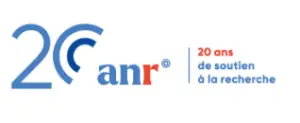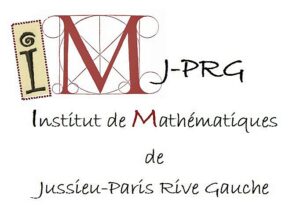Organizing Committee
Comité d’organisation
Cosmin Burtea (Université Paris Cité)
Francesco Fanelli (BCAM & Ikerbasque Bilbao)
Benjamin Melinand (Université Paris Dauphine)
Charlotte Perrin (CNRS, Aix-Marseille Université)
The proposed workshop represents the closing event of the ANR project CRISIS – Critical Regularity, Interfaces, Scale Interactions and Singularities in the dynamics of non-homogeneous fluids. Its main aim is to give a panorama of recent trends and future perspectives in the study of mathematical models arising in fluid dynamics.
In the last years, several important advances, and even breakthroughs, have been obtained in various directions: anomalous phenomena (singularity formation, non-uniqueness, anomalous dissipation of energy…), mainly linked with the theory of turbulence; boundary-induced phenomena (boundary layers, effects due to non-trivial boundary data like Rayleigh-Bénard convection, presence of obstacles…); dynamics of interface (vacuum, mixture of fluids having different densities, macroscopic description of congestion phenomena…); asymptotic description of geophysical flows (presence of multiple scales, non-trivial topography/orography…); stochasticity in fluid mechanics, especially in connection with the description of turbulent behaviour; and many others.
All the above mentioned topics are central (or in strict connection with themes which are central) in the CRISIS project, which was structured around three main research axes: description of low regularity structures, description of boundary and free-boundary phenomena, and derivation of reduced models for large-scale and multi-scale processes. At the same time, those topics also respond to the aim of broadening the interests of the team towards key current research directions and new challenges.
The structure of the proposed event is the following one:
(i) a school, from monday afternoon to wednesday morning, offering 4 mini-courses (two 1,5-hour lectures per course) on selcted topics;
(ii) a workshop, from wednesday afternoon to friday morning, with about 16 invited speakers covering the large spectrum of subjects
Ce workshop du CIRM représente l’événement de clôture du projet ANR CRISIS – Critical Regularity, Interfaces, Scale Interactions and Singularities in the dynamics of non-homogeneous fluids. Son but principal est celui de donner un panorama des recherches actuelles et des perspectives futures dans l’étude de modèles mathématiques issus de la mécanique des fluides.
Dans les dernières années, plusieurs résultats marquants, et vrais travaux fondateurs, ont été obtenus dans plusieurs directions: phénomènes anormaux (formation de singularités, non-unicité, dissipation anormale d’énergie. . . ), notamment en lien avec la théorie de la turbulence; effets de bord (couches-limite, effets dûs aux données au bord non-triviales comme dans le problème de Rayleigh-Bénard, présence d’obstacles…); dynamique d’interface (vide, mélanges de fluides avec densités différentes, description de phénomènes de congestion…); description asymptotique de flots géophysiques (présence d’échelles multiples, effets de topographie/orographie. . . ); stochastique en mécanique des fluides, notamment en lien avec la description de flots turbulents; et beaucoup d’autres phénomènes.
Tous les sujets mentionnés ci-dessus sont centraux (ou en lien stricte avec des sujets centraux) dans le projet CRISIS, qui était axé sur trois directions de recherche principales: description de structures à faible régularité, description de phénomènes de bord et de bord libre, et dérivation de modèles réduits pour des processus à large échelles et présentant des échelles multiples. En même temps, ces sujets répondent aussi au but d’élargir les intérêts scientifiques de l’équipe en direction de thèmes centraux dans la recherche actuelle et vers de nouveaux défis.
La structure de l’événement proposé est la suivante:
(i) une école, du lundi après-midi au mercredi matin, offrant 4 mini-cours (deux séances d’une heure et demi par cours) sur des sujets bien choisis;
(ii) un workshop, du mercredi après-midi au vendredi matin, avec environ 16 orateurs invités.
MINI-COURSES
Michele Coti Zelati ((Imperial College London) The dynamo problem Part.1 / Part.2
Roger Lewandowski (Université de Rennes) Modeling and analysis of some turbulence models Part.1 / Part.2
Isabelle Tristani (CNRS, Université Côte d’Azur) From Boltzmann to Navier-Stokes Part.1 / Part.2
Emil Wiedemann (FAU Erlangen-Nürnberg) Non-Deterministic Solution Concepts in Fluid Dynamics Part.1 / Part.2
SPEAKERS
Diego Alonso Orán (University of La Laguna) Rotating solutions to the incompressible Euler-Poincaré equation with external particle
Roberta Bianchini (CNR – Roma) Instabilities of internal gravity waves in the two-dimensional Boussinesq system
Miroslav Bulíček (Charles University) Activated fluids – the way out of crisis
Anne-Laure Dalibard (Sorbonne Université) A linear quasigeostrophic model for rotating fluids in the presence of a large topography
Raphaël Danchin (Université Paris-Est – Créteil Val-de-Marne) The one-dimensional compressible Navier-Stokes equations in critical regularity spaces
Lucas Ertzbischoff (Université Paris Dauphine) Monokinetic behavior in the Vlasov-Navier-Stokes system
Eduard Feireisl (Czech Academy of Sciences) End on the crisis in the Euler equations of gas dynamics?
David Gérard-Varet (Université Paris-Cité) Continuous model for suspensions of non-spherical particles in a Stokes flow
Rafael Granero-Belinchón (University of Cantabria) The free boundary problem for the Stokes system
David Lannes (CNRS, Université de Bordeaux) The F. John model and Cummin’s equation for floating objects
Mickaël Latocca (Université d’Évry) Existence of weak solution to SQG with L^{4/3} initial data
Xian Liao (Dalian University of Technology) Global-in-time regularity of compressible Navier-Stokes equations with striated density
Anna Laura Mazzucato (Penn State University) Enhanced dissipation and applications to non-linear PDEs
Aneta Wróblewska-Kamińska (Polish Academy of Sciences) Coupled Vlasov and non-Newtonian fluid dynamics




